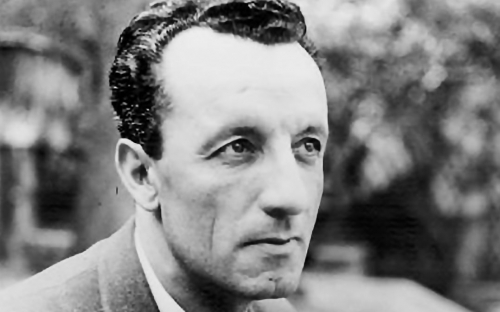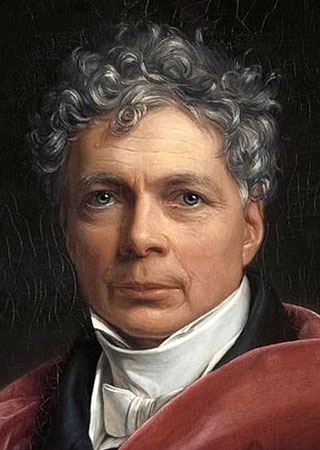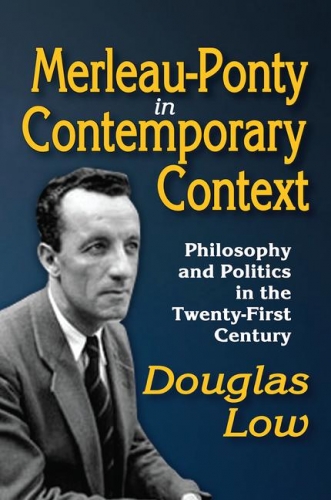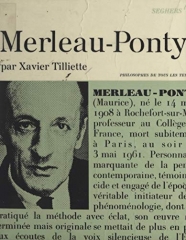samedi, 02 mai 2020
Merleau-Ponty in the footpath of Schelling ?

Merleau-Ponty in the footpath of Schelling ?
Troy Southgate
(via Facebook)
 The French existentialist, Maurice Merleau-Ponty (1908-1961), drew upon the work of Schelling on many occasions and advanced the notion that the human body is the central means of knowing the world. Formerly, Western philosophers had argued that consciousness is the source of knowledge and Merleau-Ponty's unique approach to such matters had been influenced by the phenomenological writings of Husserl and Heidegger. As a leftist, however, Merleau-Ponty does not share Schelling's view that our inner voice is that of God and, instead, prefers to adopt a materialistic position and relegate this interior dimension to an aspect of humanity itself.
The French existentialist, Maurice Merleau-Ponty (1908-1961), drew upon the work of Schelling on many occasions and advanced the notion that the human body is the central means of knowing the world. Formerly, Western philosophers had argued that consciousness is the source of knowledge and Merleau-Ponty's unique approach to such matters had been influenced by the phenomenological writings of Husserl and Heidegger. As a leftist, however, Merleau-Ponty does not share Schelling's view that our inner voice is that of God and, instead, prefers to adopt a materialistic position and relegate this interior dimension to an aspect of humanity itself.
Borrowing Schelling's idea that artistic creativity represents a 'barbaric' expression that serves to release the indwelling spirit of nature in the form of both an actual and symbolic communion with the divine, something the German had explained in his On the Relation of the Plastic Arts to Nature (1807), Merleau-Ponty outlined what he came to interpret as the sacrament of colour. Discussing the work of Cézanne, in particular, the secular French thinker presents the creative dynamism that is bound up with artistic expression in profoundly religious terms: "Suddenly the sensible takes possession of [...] my gaze, and I surrender part of my body, even my whole body to this particular manner of vibrating and feeling space known as blue or red. Just as the sacrament not only symbolises in sensible species, an operation of Grace, but is also the real presence of god, which it calls to occupy a fragment of space and communicates to those who eat of the consecrated bread, provided that they are inwardly prepared, in the same way the sensible has not only a motor and vital significance, but is nothing other than a certain way of being in the world suggested to us from some point in space, and seized and acted upon by our body, provided it is capable of doing so, so that sensation is literally a form of communion."
 These atypical thoughts were expressed in Merleau-Ponty's 1964 work, Eye and Mind, which approaches painting in the form of vision. The fact that he mentions the remarkable impact of Cézanne's work on the viewer who, presumably, is the recipient of this visual communion - echoes Schelling's own remarks about the effects on the artist himself, a process the latter describes as being "driven to production and even against an inner resistance". Two different perspectives, to be sure, but Merleau-Ponty nonetheless agrees with Schelling that such creativity is a gift or, in this case, a form of 'Grace' that denotes the presence of something mysteriously divine.
These atypical thoughts were expressed in Merleau-Ponty's 1964 work, Eye and Mind, which approaches painting in the form of vision. The fact that he mentions the remarkable impact of Cézanne's work on the viewer who, presumably, is the recipient of this visual communion - echoes Schelling's own remarks about the effects on the artist himself, a process the latter describes as being "driven to production and even against an inner resistance". Two different perspectives, to be sure, but Merleau-Ponty nonetheless agrees with Schelling that such creativity is a gift or, in this case, a form of 'Grace' that denotes the presence of something mysteriously divine.
Although it seems unusual for a confirmed Marxist to be employing the spiritual terminology favoured by his German Idealist counterpart, Merleau-Ponty was more interested in the power of human will as a manifestation of primordial consciousness: "There really is inspiration and expiration of Being, action and passion so slightly discernible that it becomes impossible to distinguish between what sees and what is seen, what paints and what is painted."
Regrettably, whilst Merleau-Ponty had framed his discussion of artistry in distinctly spiritual terms he was determined to formulate his philosophy in accordance with his personal atheism. Just as the transubstantiation of the Holy Mass converts the communion bread and wine into the body and blood of Christ, Merleau-Ponty wished to transform the ontological release of human consciousness through art into "the flesh of the world". Colour, especially, becomes an element of Being and goes beyond Freud's limited theories of the unconscious in terms of transgressing the boundaries of the psychologically mundane.
 The unleashing of this 'barbaric' principle, the symbolic power of the imagination, is a reflection of "the inexhaustible depth" that Schelling had discussed more than a century earlier. For Merleau-Ponty, being able to unearth the hidden potential of human creativity represents a totality of perception that leads to the renewal of the individual. A final word from Schelling: "The unruly lies ever in the depths as though it might again break through, and order and form nowhere appear to have been original, but it seems as though what had initially been unruly had been brought to order. This is the incomprehensible basis of reality in things, the irreducible remainder that cannot be resolved into reason by the greatest exertion but always remains in the depth. Out of this which is unreasonable, reason in the true sense is born. Without this preceding gloom, creation should have no reality; darkness is its necessary heritage."
The unleashing of this 'barbaric' principle, the symbolic power of the imagination, is a reflection of "the inexhaustible depth" that Schelling had discussed more than a century earlier. For Merleau-Ponty, being able to unearth the hidden potential of human creativity represents a totality of perception that leads to the renewal of the individual. A final word from Schelling: "The unruly lies ever in the depths as though it might again break through, and order and form nowhere appear to have been original, but it seems as though what had initially been unruly had been brought to order. This is the incomprehensible basis of reality in things, the irreducible remainder that cannot be resolved into reason by the greatest exertion but always remains in the depth. Out of this which is unreasonable, reason in the true sense is born. Without this preceding gloom, creation should have no reality; darkness is its necessary heritage."
08:45 Publié dans Philosophie | Lien permanent | Commentaires (0) | Tags : troy southgate, philosophie, merleau-ponty, schelling |  |
|  del.icio.us |
del.icio.us |  |
|  Digg |
Digg | ![]() Facebook
Facebook


